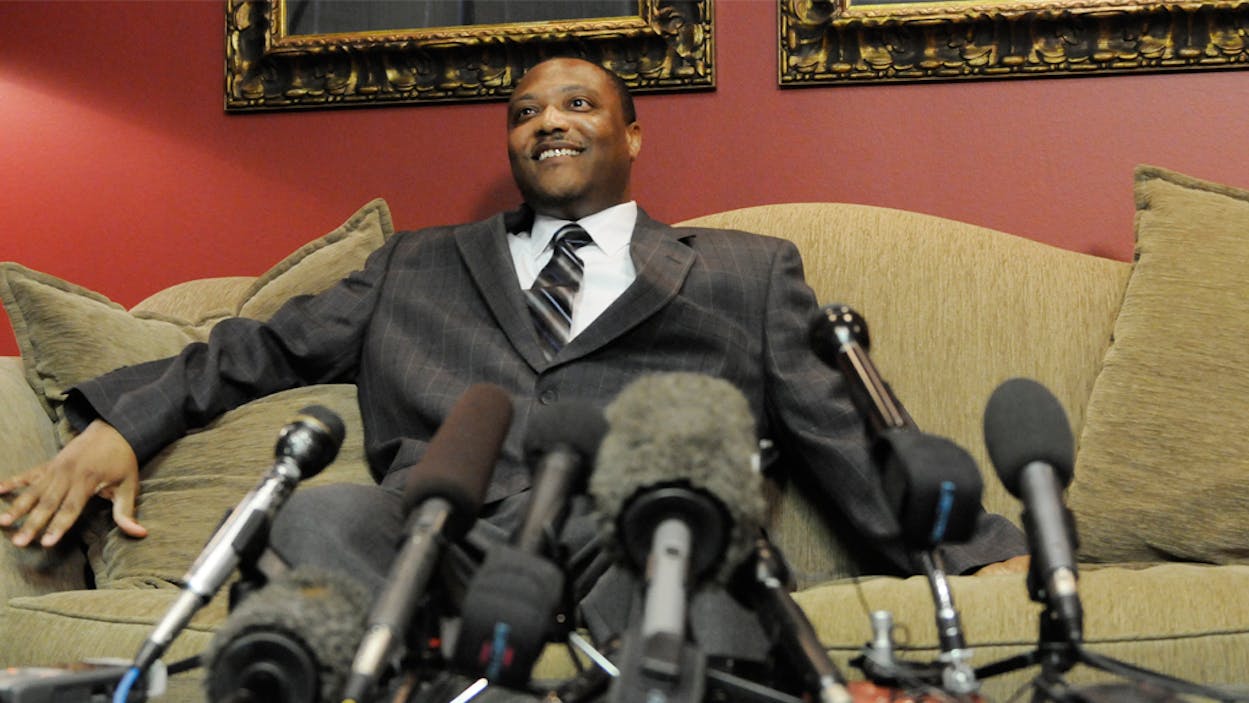Much has happened since we published “Why Was This Prosecutor Never Punished?” on December 18, which questioned why Charles Sebesta—the ex-Burleson County DA responsible for sending Anthony Graves to death row—had never been disciplined by the State Bar of Texas. Specifically, I asked why the state bar had not taken action against Sebesta after the U.S. Fifth Circuit Court of Appeals ordered that Graves be given a new trial in 2006—citing the fact that Sebesta had withheld favorable evidence and used false testimony to win his case—or after Graves was formally exonerated in 2011. Lisa Falkenberg at the Houston Chronicle, who picked up our story, put things into starker terms:
Just imagine for a moment that someone tried to kill you, not with a bullet or a blunt object, but with a poison needle.
Imagine he sent you off to a sure death you wouldn’t see until you had languished nearly two decades in a maddening cage almost crueler than the ultimate fate awaiting you. Imagine he pulled off the attempted murder with lies and threats and parlor tricks that made everybody think you were the guilty one.
Then imagine that, one day, he got found out. Eventually, the whole world found him out. Suddenly, miraculously, you were free.
But here’s the rub: so was he.
Now it turns out Graves may be able to finally seek justice. To quickly recap my initial story: While reporting in December, I learned a critically important detail from the state bar’s chief disciplinary counsel, Linda Acevedo. The bar had declined to take action against Sebesta because the statute of limitations had expired, she said, not because the bar had necessarily cleared him of wrongdoing, as he has long claimed.
When the Texas Tribune’s Brandi Grissom—who wrote about the passage of SB 825* during the last legislative session—read my article, she wondered if under the new law, Graves may still have time to take action. Senate Bill 825, which became law on January 1, holds that in cases of alleged prosecutorial misconduct, the clock does not begin ticking on the four-year statute of limitations until the day of an exoneree’s release from prison. Previously the clock began to run as soon as the misconduct was discovered, which in Graves’s case, happened early on—many years before his claims of innocence were taken seriously by the courts.
Graves was released on October 27, 2010, which means that under the new law, he has until October 27 of this year to file a grievance against Sebesta.
Today Graves will announce his plans to do just that. At a press conference at 3 o’clock this afternoon, on the campus of Texas Southern University, Graves will be joined by state senator John Whitmire, the chair of the Senate Criminal Justice Committee, and state senator Rodney Ellis, along with Graves’s attorney, Robert Bennett, who brought the original grievance against Sebesta in 2007. Bennett will be filing the new grievance electronically with the state bar at the press conference. This will be the first test of SB 825 since it became law.
And, taking a page from the Innocence Project’s playbook in the Michael Morton case, Graves’s attorneys will try to pursue criminal charges as well. “Once the grievance has been filed,” Bennett told me, “we have been authorized by our client to investigate a court of inquiry.”
In bringing this complaint against Sebesta, Graves told me, he is trying to help restore faith in the criminal justice system. “This is the new civil rights era for prosecutorial accountability, and the tone needs to be set with this complaint,” Graves said. “It is my hope that the State of Texas will support my efforts in making sure that justice is achieved and not just swept under a rug. I am seeking justice.”
*Correction: A previous version of this article referred to SB 825 as the Michael Morton Act, a different law that requires prosecutors to give defense attorneys evidence that is relevant to the defense’s case. We regret the error.







